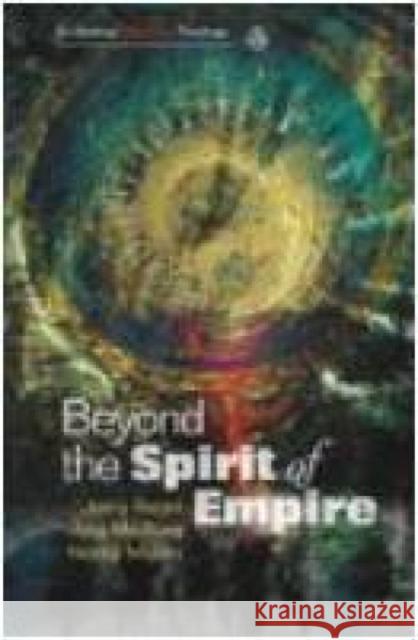Beyond the Spirit of Empire: Theology and Politics in a New Key » książka
Beyond the Spirit of Empire: Theology and Politics in a New Key
ISBN-13: 9780334043225 / Angielski / Miękka / 2009 / 226 str.
'This rich and interdisciplinary book presents a powerful up-to-date critique of the spirit of Empire, using critical insights from post-Marxist, postmodern, and postcolonial theories. Written by authors who have engaged liberation Christianity from three different geographical locales, this text provides resources and visions for those who believe that annother world and an alternative spirit that resists Empire are possible. I highly recommend this creative theological reading of transcendence, subjectivity, and democracy in the political present.' --Kwok Pui-lan, author of Postcolonial Imagination and Feminist Theology In the current situation of empire, subjectivity and desire are shaped in new ways, often unconsciously. The analysis of these mechanisms is geared to identifying alternative possibilities for the formation of subjectivity and desire, pointing beyond the structures of empire. If there is a notion of transcendence that operates in the current embodiments of empire, empire cannot be understood without religious categories. Contemporary manifestations of Empire insist on the ideals of the republic and of democracy. How do the religious connotations of these notions shift and how can religious reflection help us develop new perspectives on political ethics? Joerg Rieger is Professor of Systematic Theology at Perkins School of Theology, Southern Methodist University, Dallas, Texas. Jung Mo Sung is Professor of Religion and Culture at the Methodist University of Sao Paulo. Nestor Miguez is Professor of Biblical Studies at Institutio Superior Evangelico de Estudios Teleogicos in Buenos Aires, Argentina.
This rich and interdisciplinary book presents a powerful up-to-date critique of the spirit of Empire, using critical insights from post-Marxist, postmodern, and postcolonial theories. Written by authors who have engaged liberation Christianity from three different geographical locales, this text provides resources and visions for those who believe that annother world and an alternative spirit that resists Empire are possible. I highly recommend this creative theological reading of transcendence, subjectivity, and democracy in the political present. --Kwok Pui-lan, author of Postcolonial Imagination and Feminist Theology In the current situation of empire, subjectivity and desire are shaped in new ways, often unconsciously. The analysis of these mechanisms is geared to identifying alternative possibilities for the formation of subjectivity and desire, pointing beyond the structures of empire. If there is a notion of transcendence that operates in the current embodiments of empire, empire cannot be understood without religious categories. Contemporary manifestations of Empire insist on the ideals of the republic and of democracy. How do the religious connotations of these notions shift and how can religious reflection help us develop new perspectives on political ethics? Joerg Rieger is Professor of Systematic Theology at Perkins School of Theology, Southern Methodist University, Dallas, Texas.Jung Mo Sung is Professor of Religion and Culture at the Methodist University of Sao Paulo.Nestor Miguez is Professor of Biblical Studies at Institutio Superior Evangelico de Estudios Teleogicos in Buenos Aires, Argentina.











